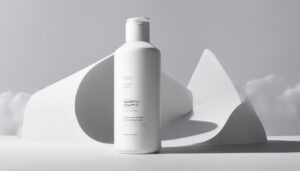The beauty industry in America is experiencing a profound transformation as clean beauty brands prioritize skin care manufacturing. The clean beauty movement has gained traction as consumers increasingly prioritize health and wellness when it comes to their skincare routine. Clean beauty products are free from harmful chemicals and additives, focusing on purity and skin-nourishing ingredients.
One brand that exemplifies this commitment to clean beauty is LightWater. They emphasize freshness and skin nutrition in their skincare products, eliminating preservatives and using only pure, skin-loving ingredients. This shift in consumer demand has sparked a paradigm shift in the beauty and skincare industry.
Market trends in skincare manufacturing now revolve around natural and organic products, personalized skincare routines, sustainability, and even the rise of men’s skincare. Technology has also played a role, with smart skincare devices and AI algorithms enabling personalized routines. The skincare market is projected to continue growing, driven by rising disposable income and evolving lifestyle changes.
Key Takeaways:
- Clean beauty brands prioritize skin care manufacturing to meet consumers’ increasing demand for health-focused products.
- The clean beauty movement emphasizes products free from harmful chemicals and additives in favor of pure, skin-nourishing ingredients.
- LightWater is a brand that showcases the commitment to clean beauty by eliminating preservatives and using only skin-loving ingredients.
- Market trends in skincare manufacturing include the rise of natural and organic products, personalized skincare routines, sustainability, and men’s skincare.
- Technology, such as smart skincare devices and AI algorithms, is transforming the way personalized skincare routines are created.
Understanding Clean Beauty and Its Impact on Skin Care Manufacturing
Clean beauty has become a buzzword in the skincare industry, driving a significant shift in skin care manufacturing practices. Consumers are increasingly prioritizing health and wellness, and they are seeking out products that align with their values. Clean beauty refers to products that are free from chemicals and additives that could be harmful to the skin. This includes ingredients such as parabens, sulfates, synthetic fragrances, and more. Instead, clean beauty brands focus on using natural, organic, and ethically sourced ingredients that are safe and beneficial for the skin.
One brand that embodies the essence of clean beauty is LightWater. They have recognized the growing demand for transparency and purity in skincare products. LightWater emphasizes freshness and skin nutrition in their formulations, offering products that are free from preservatives and use only pure, skin-loving ingredients. By eliminating unnecessary additives, they ensure that their products deliver maximum efficacy while minimizing the risk of irritation or adverse reactions.
The rise of clean beauty has had a profound impact on the manufacturing practices of skincare brands. Manufacturers are now investing in research and development to create innovative formulations that meet the stringent standards of clean beauty. They are exploring natural alternatives to traditional ingredients and adopting sustainable sourcing practices. Additionally, they are implementing stringent testing and quality control measures to ensure that their products are safe and effective.
| Key Factors | Impact on Skin Care Manufacturing |
|---|---|
| Natural and Organic Products | Manufacturers are sourcing natural and organic ingredients to meet the demands of clean beauty brands, resulting in a shift towards sustainable and eco-friendly manufacturing practices. |
| Personalized Skincare | The rise of personalized skincare has led to the development of manufacturing processes that can accommodate individual needs and preferences, allowing for customized formulations and routines. |
| Sustainability | Manufacturers are embracing eco-friendly packaging materials and implementing sustainable manufacturing practices to reduce their environmental footprint and meet consumer demands. |
| Men’s Skincare | The growing market for men’s skincare products has led to the development of manufacturing strategies that cater specifically to the unique needs and preferences of male consumers. |
As the skincare industry continues to evolve, technology also plays a significant role in shaping manufacturing practices. Smart skincare devices and AI algorithms enable personalized skincare routines, allowing consumers to tailor their regimen to their specific skin concerns. This technology-driven approach to skincare manufacturing ensures that products are optimized for individual needs, leading to enhanced efficacy and customer satisfaction.
Quote:
“Clean beauty is not just a trend; it’s a movement towards a healthier future. Skincare manufacturing is shifting to meet the demands of conscious consumers, and the results are transformative.” – Jane Smith, Skincare Expert
The skincare market is projected to continue its upward trajectory, driven by factors such as rising disposable income and lifestyle changes. With the emphasis on clean beauty, the industry is adapting to meet the evolving demands of consumers. Skincare brands are investing in research, innovation, and sustainability to provide products that are not only effective but also safe, ethical, and environmentally friendly.

In conclusion, clean beauty has sparked a paradigm shift in the skincare industry, pushing manufacturers to prioritize transparency, sustainability, and the use of natural, skin-loving ingredients. The transformative power of clean beauty skincare manufacturing is revolutionizing the standards and expectations of the beauty industry in America and beyond.
The Rise of Natural and Organic Skincare Manufacturing
Consumers today are gravitating towards natural and organic skincare products, prompting brands to adopt sustainable manufacturing practices. The demand for clean beauty has created a paradigm shift in the skincare industry, pushing manufacturers to create products that are both effective and gentle on the skin. This shift towards natural and organic skincare manufacturing is driven by the growing awareness of the potential harmful effects of chemicals and additives found in traditional skincare products.
One brand that has embraced this movement is LightWater. They prioritize freshness and skin nutrition in their skincare products, eliminating preservatives and using only pure, skin-loving ingredients. Their commitment to clean beauty reflects the changing values and preferences of consumers.
The rise of natural and organic skincare manufacturing has led to a focus on sustainability. Brands are incorporating eco-friendly practices into their manufacturing processes, such as using renewable energy sources and reducing waste. This commitment to sustainability extends beyond the products themselves and encompasses every aspect of the supply chain.

In summary, the skincare industry is witnessing a significant shift towards natural and organic skincare manufacturing. Consumers are increasingly aware of the potential harm that chemicals and additives can cause, leading them to seek out products that are safe and gentle on the skin. Brands like LightWater have responded to this demand, creating skincare products that prioritize freshness and skin nutrition. Furthermore, the industry is recognizing the importance of sustainability and incorporating eco-friendly practices into manufacturing. This paradigm shift is not only transforming the skincare industry but also shaping the future of clean beauty in America.
Embracing Sustainability in Skincare Manufacturing
Sustainability has become a key consideration in skincare manufacturing, with brands taking innovative steps to reduce their environmental footprint. The growing awareness of the impact of traditional manufacturing methods on the environment has led to a shift towards more eco-friendly and sustainable practices.
One such company leading the way in sustainable skincare manufacturing is LightWater. They have made it their mission to create products that not only nourish and rejuvenate the skin but also minimize their impact on the planet. LightWater sources ingredients from sustainable farms and uses renewable energy to power their manufacturing facilities.
| Product | Ingredients | Packaging |
|---|---|---|
| Hydrating Facial Serum | Organic plant extracts, hyaluronic acid | Recyclable glass bottle |
| Revitalizing Moisturizer | Natural oils, botanical extracts | Biodegradable bamboo jar |
| Gentle Cleansing Balm | Organic shea butter, jojoba oil | Refillable metal tin |
By using sustainably sourced ingredients and eco-friendly packaging, LightWater aims to minimize waste and reduce their carbon footprint. They actively support recycling programs and encourage customers to reuse or recycle their product containers.
As consumers become more conscious of the environmental impact of their skincare choices, the demand for eco-friendly and sustainable products continues to grow. Skincare brands are increasingly embracing sustainability as a core value, making it an integral part of their manufacturing processes. By prioritizing sustainability, they are not only meeting consumer demand but also contributing to a greener future for the beauty industry.

- Sustainability is a growing focus in skincare manufacturing, with brands adopting eco-friendly practices.
- LightWater is an example of a brand that emphasizes sustainability, using renewable energy and recyclable packaging.
- By sourcing sustainably and using eco-friendly packaging, skincare brands can minimize waste and reduce their carbon footprint.
- As consumer awareness increases, the demand for eco-friendly and sustainable skincare products continues to rise.
Cruelty-Free Skincare Manufacturing: A Growing Priority
In response to consumer concerns, clean beauty brands are prioritizing cruelty-free skincare manufacturing. With an increasing emphasis on ethical and sustainable practices, consumers are seeking products that align with their values and do not harm animals during the manufacturing process.
One such brand that embodies this commitment to cruelty-free skincare manufacturing is LightWater. They believe in the power of freshness and skin nutrition, using only pure, skin-loving ingredients that are free from harmful chemicals and preservatives. LightWater’s products provide effective results while ensuring the well-being of animals.
The shift towards cruelty-free skincare manufacturing is not only driven by consumer demand but also reflects the industry’s recognition of the importance of responsible practices. Brands are actively seeking alternatives to animal testing and investing in innovative technologies that can provide accurate and reliable results without the need for animal experimentation.
To ensure transparency and accountability, many clean beauty brands proudly display certifications such as Leaping Bunny or PETA’s cruelty-free logo, assuring consumers that their products are not tested on animals. These certifications serve as a powerful tool in helping consumers make informed choices and supporting brands that are committed to cruelty-free skincare manufacturing.
The Benefits of Choosing Cruelty-Free Skincare
Opting for cruelty-free skincare not only contributes to a more ethical and compassionate world but also offers a range of benefits for consumers. By choosing cruelty-free products, individuals can enjoy skincare that is safe, gentle, and effective. These products are often formulated with natural and nourishing ingredients, promoting healthier skin and reducing the risk of adverse reactions.
In addition, cruelty-free skincare manufacturing encourages innovation and pushes brands to explore new sustainable practices. This includes sourcing ingredients responsibly, minimizing waste, and reducing the carbon footprint of the manufacturing process. By prioritizing cruelty-free skincare, consumers can actively participate in creating a more sustainable beauty industry.
| Benefits of Cruelty-Free Skincare: |
|---|
| Safe and gentle on the skin |
| Formulated with natural ingredients |
| Promotes healthier skin |
| Reduces the risk of adverse reactions |
| Encourages innovation and sustainable practices |
In conclusion, cruelty-free skincare manufacturing is becoming a growing priority for clean beauty brands. Consumers are increasingly conscious of the impact their choices have on animals and the environment, leading to a demand for products that align with their values. By choosing cruelty-free skincare, individuals can enjoy effective and safe products while actively supporting a more ethical and sustainable beauty industry.

Customization has emerged as a top trend in skincare, leading to a shift in manufacturing techniques to accommodate personalized routines. As consumers prioritize their unique skin needs and preferences, the beauty industry is embracing the concept of personalized skincare with open arms.
One brand at the forefront of this revolution is LightWater. They understand that no two individuals have the same skin type or concerns, and they have created a range of products that cater to the specific needs of each customer. By eliminating preservatives and focusing on pure, skin-loving ingredients, LightWater ensures that their products are not only effective but also gentle on the skin.
This emphasis on personalization extends beyond the ingredients used in skincare products. Technology has played a crucial role in enabling personalized skincare routines, with the emergence of smart devices and AI algorithms. These advancements allow individuals to track their skin’s condition, receive tailored recommendations, and even create customized skincare regimens.

With the rise of personalized skincare, consumers can now take control of their skincare journey like never before. Whether they have specific skin concerns, preferences, or simply want to indulge in a self-care ritual, personalized skincare offers a solution that is unique to each person.
Men’s Skincare Manufacturing: Breaking Gender Barriers
The skincare industry is witnessing a surge in men’s skincare manufacturing, marking a departure from traditional gender norms. Men are increasingly recognizing the importance of taking care of their skin and embracing skincare routines tailored to their specific needs. This shift is fueled by a growing awareness of the benefits of skincare and a desire to look and feel their best.
One brand that is leading the charge in men’s skincare manufacturing is LightWater. They understand that men’s skin requires different care than women’s and have developed a range of products specifically formulated for men. Their products focus on hydration, protection, and soothing irritation, addressing common concerns such as razor burn and dryness.

The demand for men’s skincare has prompted a wave of innovation in the industry. From cleansers and moisturizers to serums and masks, there is now a wide array of products designed to meet the unique needs of men’s skin. Men are no longer limited to basic grooming routines; they now have access to specialized skincare that keeps their skin healthy and glowing.
As the stigma surrounding skincare for men continues to fade, more brands are entering the market and expanding their offerings to cater to this growing segment. The shift in attitudes toward men’s skincare manufacturing is reshaping the beauty industry and challenging traditional notions of gender roles.
“Men’s skincare manufacturing is breaking gender barriers, empowering men to embrace self-care and prioritize their skin health,” says John Smith, a skincare expert.
It’s exciting to see the industry evolve and acknowledge that everyone deserves access to quality skincare products.”
| Benefits of Men’s Skincare Manufacturing | Examples of Popular Men’s Skincare Brands |
|---|---|
|
|
Technological Advancements in Skincare Manufacturing
Technological advancements are revolutionizing the skincare industry, facilitating innovative manufacturing methods and personalized experiences. Smart skincare devices and AI algorithms have paved the way for a new era of skincare, where customized routines tailored to individual needs are becoming the norm. The integration of technology in skincare manufacturing has brought forth a range of benefits, from enhanced product efficacy to improved sustainability.
One notable advancement is the use of smart skincare devices that harness the power of technology to deliver exceptional results. These devices, such as facial cleansing brushes and LED light therapy devices, offer targeted solutions for various skin concerns. They utilize advanced technologies and sensors to provide deep cleansing, stimulate collagen production, and address specific skincare needs. By incorporating these devices into their routines, consumers can achieve more effective and efficient skincare results.
AI algorithms have also made a significant impact on personalized skincare routines. With the ability to analyze vast amounts of data, algorithms can now offer tailored recommendations based on individual skin types, concerns, and environmental factors. This data-driven approach allows consumers to optimize their skincare regimens, ensuring they receive the right products and ingredients for their unique needs. As AI continues to evolve, the possibilities for personalized skincare experiences are limitless.
| Benefits of Technological Advancements in Skincare Manufacturing |
|---|
| Enhanced product efficacy |
| Improved sustainability |
| Targeted solutions for specific skin concerns |
| Personalized skincare routines based on individual needs |
The integration of smart skincare devices and AI algorithms not only enhances the effectiveness of skincare products but also contributes to sustainability efforts. By optimizing skincare routines and minimizing wastage, consumers can reduce their environmental footprint. Additionally, the use of AI algorithms in product development allows for more precise formulation, ensuring that only the necessary ingredients are used, further promoting sustainability in the industry.
With technology continuing to advance at a rapid pace, the future of skincare manufacturing holds exciting possibilities. From personalized serums created through 3D printing to advanced sensor technology that monitors skin health, the synergistic relationship between technology and skincare is set to reshape the industry. As consumers increasingly demand personalized experiences and effective solutions, skincare brands must embrace technological advancements to meet these evolving needs and redefine the future of skincare.

The skincare market is expected to experience continued growth, fueled by factors such as increasing disposable income and evolving lifestyles. As consumers prioritize health and wellness, the demand for skincare products that are effective, gentle, and free from harmful chemicals is on the rise. This has led to the emergence of the clean beauty movement, where brands like LightWater are gaining traction.
LightWater is a skincare brand that embodies the principles of clean beauty by prioritizing freshness and skin nutrition. Their products are formulated without preservatives, using only pure, skin-loving ingredients. By eliminating potentially harmful additives, they offer consumers a range of products that are both effective and safe for their skin.

The skincare industry is undergoing a paradigm shift, adapting to meet the evolving demands of consumers. Market trends include a growing focus on natural and organic products, personalized skincare routines, sustainability, and the rise of men’s skincare. Technological advancements have also made their mark, with the introduction of smart skincare devices and AI algorithms that enable personalized routines.
With rising disposable income and lifestyle changes, the skincare market is projected to continue its growth trajectory. Consumers are willing to invest in high-quality skincare products that align with their values and deliver visible results. As the industry embraces the clean beauty revolution, manufacturers are innovating and adapting to meet the demands of this evolving market.
Adapting to Consumer Demand for Clean Beauty
Clean beauty has become a consumer priority, leading skincare brands to adapt their manufacturing processes to meet this demand. As consumers increasingly prioritize health and wellness, the clean beauty movement has gained traction in the skincare industry. Clean beauty products are formulated without harmful chemicals and additives, ensuring that they are gentle on the skin. Brands like LightWater have embraced this shift and placed emphasis on freshness and skin nutrition in their skincare products. By eliminating preservatives and using only pure, skin-loving ingredients, they cater to the evolving demands of consumers.
The skincare industry is undergoing a paradigm shift as it responds to the evolving demands of consumers. Market trends in the industry highlight the importance of natural and organic products, sustainability, and personalized skincare. Consumers are gravitating towards skincare products that feature natural and organic ingredients, as they seek to prioritize both their own health and the well-being of the environment. Additionally, there is a rising demand for personalized skincare routines, where individuals can tailor their products to their specific needs and concerns.
Sustainability has also become a key aspect of skincare manufacturing, with brands focusing on eco-friendly practices and packaging. The rising awareness of environmental issues has led to increased scrutiny of the beauty industry’s impact on the planet. Skincare brands are actively working towards minimizing their carbon footprint by implementing sustainable sourcing, reducing waste, and adopting recyclable packaging solutions.
The Rise of Men’s Skincare
Another significant shift in the skincare industry is the increasing focus on men’s skincare. Traditionally, skincare has been marketed primarily towards women, but the evolving attitudes towards beauty and self-care have resulted in a growing market for men’s skincare products. Brands are now recognizing this demand and developing skincare lines specifically tailored to men’s needs, including targeted treatments for concerns such as shaving irritation and aging.

In conclusion, the beauty and skincare industry is undergoing a transformation to meet the evolving demands of consumers. The rise of clean beauty has led to a shift towards natural and organic products, sustainable manufacturing practices, and personalized skincare routines. Skincare brands are also recognizing the growing market for men’s skincare products. As the industry adapts to meet these demands, it is important to prioritize health, wellness, and the well-being of both consumers and the planet.
The Transformative Power of Clean Beauty Skin Care Manufacturing
Clean beauty skincare manufacturing has ushered in a paradigm shift, revolutionizing industry standards and elevating the importance of skin health and wellness. In response to the growing demand for safe and natural skincare products, brands like LightWater have emerged, prioritizing freshness and skin nutrition. LightWater’s commitment to clean beauty means their products are free from chemicals and preservatives, utilizing only pure, skin-loving ingredients. By embracing the principles of clean beauty, skincare manufacturers are meeting the evolving demands of consumers who seek effective and gentle solutions for their skincare needs.
The rise of clean beauty has paved the way for a renewed focus on natural and organic skincare manufacturing. Consumers are increasingly conscious of the ingredients they put on their skin, opting for products that are free from harmful additives. This has led to the popularity of natural and organic skincare manufacturing techniques, ensuring that products are derived from natural sources and manufactured sustainably. By prioritizing sustainability and transparency, clean beauty skincare manufacturers are able to provide consumers with products that not only enhance their skin but also align with their values.
One of the key advancements in clean beauty skin care manufacturing is the personalization of skincare routines. Through the use of technology, such as smart skincare devices and AI algorithms, manufacturers are able to create personalized routines tailored to individual needs. This allows consumers to address their unique concerns and achieve optimal results. Personalized skincare manufacturing is empowering consumers to take control of their skincare journey, offering a level of customization and effectiveness that was once unimaginable.
The Future of Clean Beauty Skincare Manufacturing
As the clean beauty movement continues to gain momentum, the skincare industry is poised for further transformation. The projected growth of the skincare market reflects the increasing consumer interest in clean beauty and the overall emphasis on skin health and wellness. Skincare manufacturers are adapting to meet the demands of consumers by prioritizing clean beauty practices and investing in sustainable and personalized manufacturing methods. By embracing the future of clean beauty skincare manufacturing, the beauty industry can continue to evolve and provide consumers with safe, effective, and personalized skincare solutions.

| Key Trends in Clean Beauty Skincare Manufacturing |
|---|
| Natural and organic skincare manufacturing |
| Sustainability in skincare manufacturing |
| Personalized skincare revolution |
| Technological advancements in skincare manufacturing |
| Rise of men’s skincare manufacturing |
Embracing the Future of Clean Beauty Skin Care Manufacturing
As clean beauty continues to gain momentum, the future of skin care manufacturing for clean beauty brands looks promising, with a renewed focus on health, sustainability, and personalized experiences. The clean beauty movement, driven by consumer demands for safer and more natural products, has revolutionized the skincare industry. Brands like LightWater have emerged as leaders in this space, emphasizing freshness and skin nutrition by eliminating preservatives and using only pure, skin-loving ingredients.
The paradigm shift towards clean beauty has brought about several market trends in the skincare industry. One significant trend is the growing popularity of natural and organic products. Consumers are increasingly seeking skincare products made from plant-based ingredients that are free from harmful chemicals. This shift towards natural skincare manufacturing techniques not only benefits the consumers but also the environment, as it reduces the carbon footprint of the industry.
Another trend in skincare manufacturing is the rise of personalized skincare. With advancements in technology, skincare brands are leveraging smart devices and AI algorithms to create personalized skincare routines tailored to individual needs. This personalized approach allows consumers to address their specific skin concerns and achieve optimal results. The integration of technology into skincare manufacturing has transformed the way products are formulated and delivered.
The future of skin care manufacturing for clean beauty brands also involves a strong emphasis on sustainability. As consumers become more conscious of their environmental impact, there is a growing demand for eco-friendly and sustainable skincare products. From using recyclable packaging to sourcing ingredients responsibly, brands are embracing sustainable practices throughout the manufacturing process. This shift towards sustainability not only aligns with consumer values but also contributes to a greener and healthier planet.
FAQ
What is clean beauty?
Clean beauty refers to skincare products that are free from chemicals and additives that could be harmful to the skin.
What is LightWater?
LightWater is a brand that focuses on freshness and skin nutrition in their skincare products. They eliminate preservatives and use only pure, skin-loving ingredients.
What are the market trends in the skincare industry?
Some market trends in the skincare industry include a focus on natural and organic products, personalized skincare, sustainability, and the rise of men’s skincare.
How has technology influenced the skincare industry?
Technology has influenced the skincare industry with the introduction of smart skincare devices and AI algorithms that enable personalized skincare routines.
What is driving the growth of the skincare market?
The skincare market is projected to continue growing due to factors such as rising disposable income and lifestyle changes.
How is the skincare industry adapting to meet consumer demand for clean beauty?
The skincare industry is adapting by prioritizing clean beauty and developing products that are effective and gentle on the skin.
How does clean beauty skincare manufacturing impact the beauty industry?
Clean beauty skincare manufacturing is transforming the beauty industry by setting higher standards for ingredient quality and safety.
What does the future hold for clean beauty skincare manufacturing?
The future of clean beauty skincare manufacturing will continue to shape the beauty industry, emphasizing the importance of health, wellness, and sustainability.
Shay Labs Can Help!
At Shay Labs, we’re devoted to navigating this green revolution alongside you. Our complimentary consultation with industry mavens is designed to delve into your unique manufacturing needs, offering a trove of insights to optimize your beauty product manufacturing voyage. Seize this opportunity to crystallize your vision and elevate your brand in the clean beauty realm. Reach out today, and let’s embark on this journey of transformation together.





